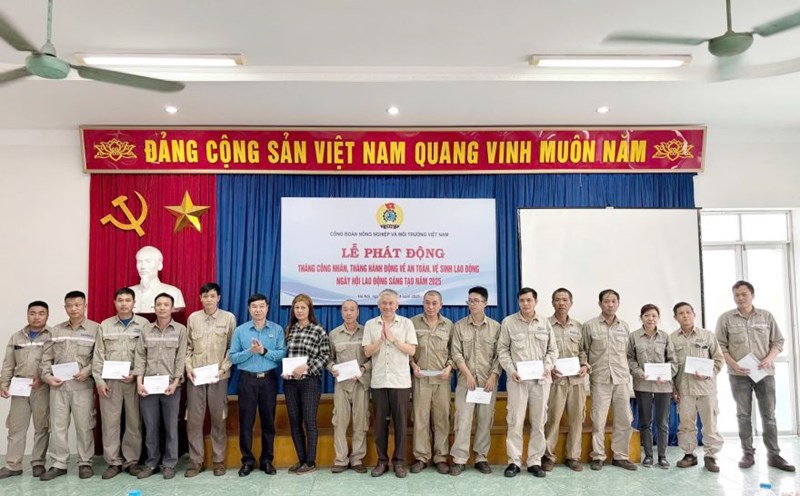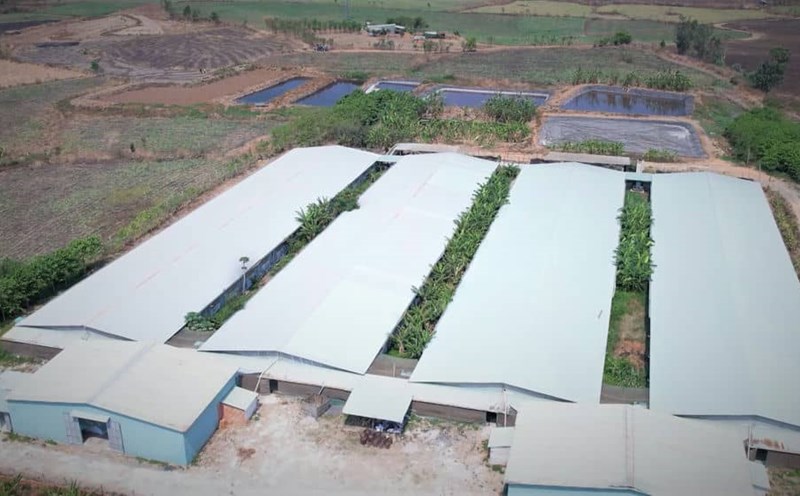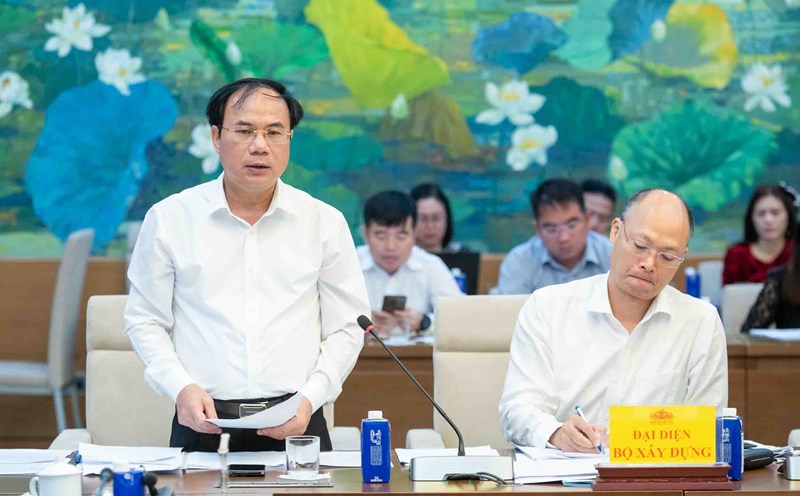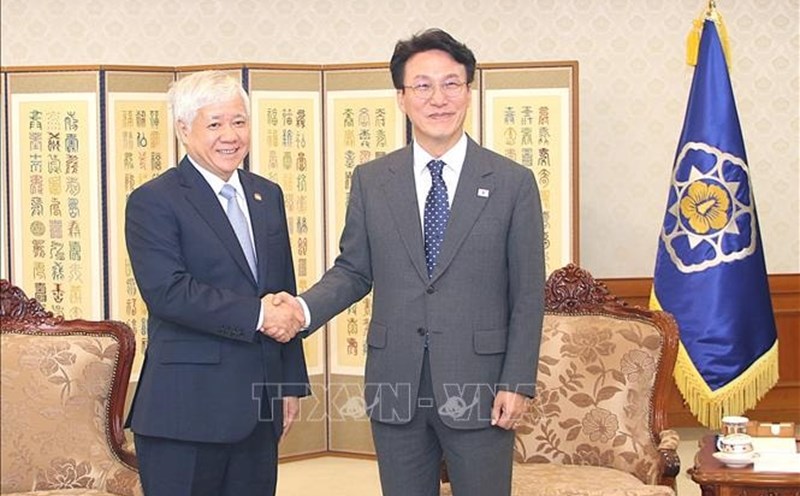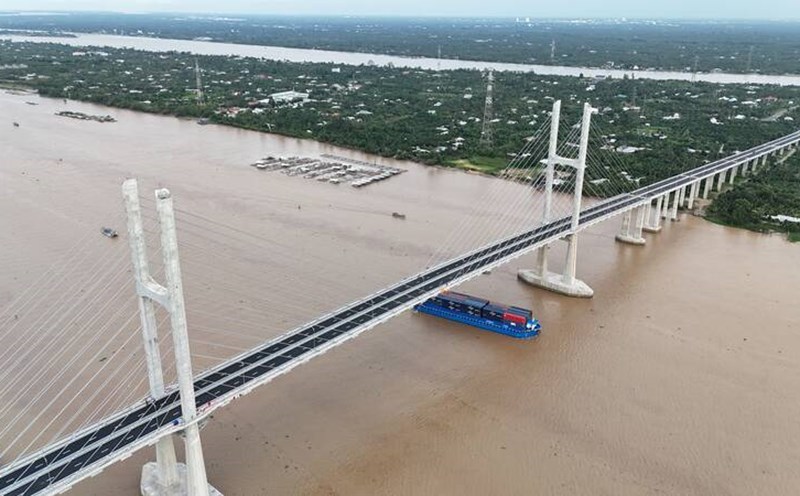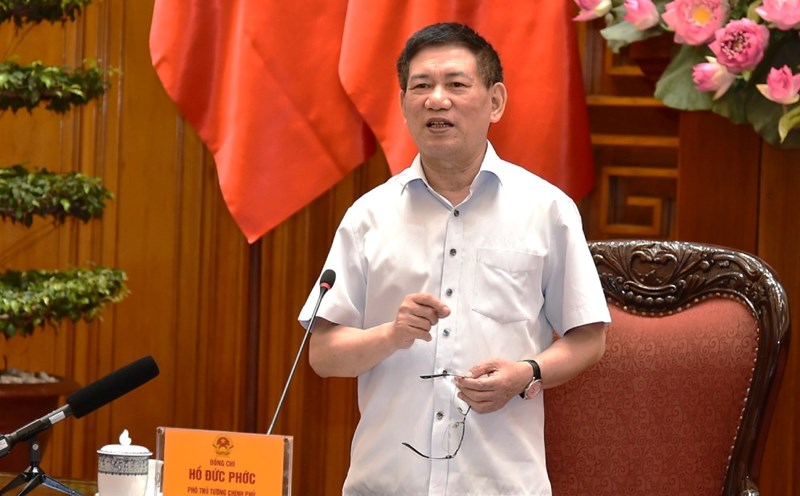On July 31, in Hanoi, the Supervisory Delegation on the topic "Implementation of policies and laws on environmental protection since the Law on Environmental Protection 2020 took effect" had a working session with the Ministry of Science and Technology (M ensuring environmental protection).
Deputy Minister of Science and Technology Le Xuan Dinh said that by 2025, the national environmental standards system (NASC) will have 638 NASCs.
Implementing the Law on Environmental Protection, in the period of 2020-2025, the Ministry has organized an appraisal and announcement of 151 TCVns; of which air quality has 29 TCVns; water quality 50 TCVns; soil quality 19 TCVns; waste 37 TCVns; greenhouse gas control 11 TCVns; climate change prevention 5 TCVns.
Regarding technical regulations (QCVN), implementing the Law on Environmental Protection 2020, the Ministry has appraised 30 QCVN and received registration of 20 QCVN.
According to Deputy Minister Le Xuan Dinh, the TCVN and QCVN systems have contributed significantly to improving the effectiveness of environmental management, supporting environmental inspection, examination, licensing and promoting modern environmental treatment technology.
At the same time, strengthen the technical basis for participating in the carbon market, inventorying greenhouse gases, tracing the origin of green products and meeting the requirements of international commitments.
Regarding the limitations and shortcomings in the current standard system, Deputy Minister Le Xuan Dinh said that the rate of TCVN being completely harmonized with international standards is still low, only reaching about 30%.
Meanwhile, the QCVN system is also not complete, not covering new and urgent areas such as: greenhouse gas control, carbon credits, environmentally friendly products, waste recycling and reuse, circular economy.
To meet the requirements of domestic environmental management and gradually integrate internationally, the Deputy Minister said that it is necessary to synchronize the national and international standard system.
In his speech, Vice Chairman of the National Assembly Le Minh Hoan emphasized that the Ministry of Science and Technology needs to have a deeper understanding of its role and responsibility in environmental protection, especially in the new context.
According to the Vice Chairman of the National Assembly, policies and laws on environmental protection in the new context will be difficult to effectively implement if not closely linked with the development, application of science and technology, innovation, and strong digital transformation.
First of all, the Ministry must urgently perfect institutions and policies for science and technology related to environmental protection, effectively implementing major resolutions, especially Resolution No. 57-NQ/TW.
Fully comply with the provisions of the Law on Environmental Protection 2020 and guiding documents; promptly review, amend, and supplement the issuance of QCVN and TCVN on environmental protection to ensure consistency, facilitating the implementation process.
According to the Vice Chairman of the National Assembly, the Ministry needs to proactively study and propose amendments to relevant legal regulations to remove policy bottlenecks.
In addition, the Ministry needs to focus resources and promote socialization of investment in research, application of science and technology, innovation and digital transformation, especially in the environmental field.
At the same time, it is also necessary to closely coordinate with ministries, branches and localities to propose breakthrough policies, strongly mobilize social resources, and prioritize the implementation of the National Environmental Protection Strategy to 2030, with a vision to 2050.
Along with that, the Ministry needs to pay attention to training high-quality human resources, attracting and rewarding talents in the field of science, technology and the environment.

